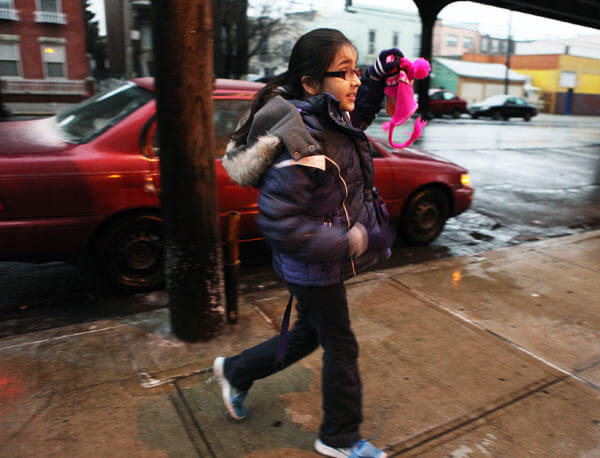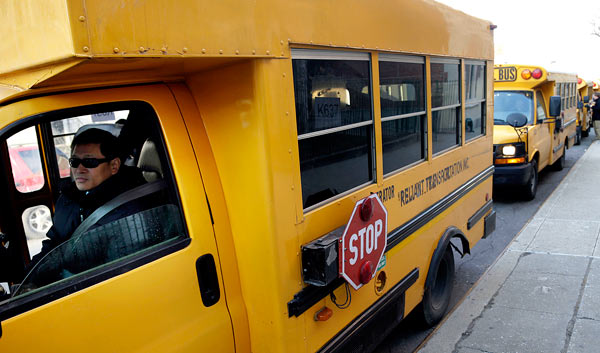By Phil Corso
Thousands of students in Queens and the other boroughs boarded their school buses for the first time in more than a month Wednesday after union leaders gave drivers the green light, putting the brakes on a controversial strike.
The move has made life infinitely easier on both the wallets and minds of parents throughout the city, including those of Jackson Heights mother and special education teacher Poonam Batra.
Since drivers of the Amalgamated Transit Union Local 1181 went on strike Jan. 15 amid a labor dispute with the city, Batra was forced to taxi 10-year-old daughter Rashmika and her peers to school at PS 85 in Astoria, making her late to her own job in Jamaica.
“It has been a very difficult time for all of the parents,” she said. “Taking my daughter back and forth to school was a long way to go. It was becoming expensive.”
But after news broke Friday evening that union leadership had put a halt to the strike, the Jackson Heights mother was freed of that burden.
“Life seems to be better now. Everything is coming back to normal,” Batra said.
The union announced Friday it would end the strike, allowing its roughly 8,800 employees to return to work Wednesday morning. For weeks, more than 150,000 students — 54,000 of whom have disabilities and special transportation requirements — were left without a ride to school as their drivers feuded with the city over maintaining certain job protections in the form of an Employee Protection Provision.
It was the first time city bus drivers had gone on strike since 1979.
“For decades, the monopolistic bus contract process benefited the bus companies and unions at the expense of the city’s taxpayers and students but no longer,” Mayor Michael Bloomberg said. “In the city’s entire history, the special interests have never had less power than they do today, and the end of this strike reflects the fact that when we say we put children first, we mean it.”
But not all the drivers were welcomed back, according to a New York Post report. According to the Post, some drivers, including more than 100 who worked for Boro Wide Buses in Brooklyn, were told they could not return to their posts as some were already replaced.
Late last week, ATU President Larry Hanley said he had received a promising letter from Democratic mayoral candidates, leading him and Local 1181 President Michael Cordiello to reconsider their position.
In the letter, City Council Speaker Christine Quinn (D-Manhattan), city Public Advocate Bill de Blasio, city Comptroller John Liu, former Comptroller Bill Thompson, and former City Councilman Sal Albanese pledged to revisit the possibility of job guarantees in future contracts if elected.
During the strike, the city spent more than $20 million in reimbursements for parents who needed cabs or other services to get their children to school, but saved about $80 million by not paying the striking bus companies.
Walcott said the city was in the process of reviewing 67 proposed contracts after it put 1,100 of the city’s 7,700 bus routes out for bidding with hopes of cutting costs and reinvesting savings in the classroom.
“These new bids will allow us to not only contain soaring costs, but they will also allow for more flexibility in the service we provide, and will contain the same safety provisions and requirements as the old contracts,” Walcott said. “It is important for me to emphasize that these contracts will include all the same safety requirements as the current ones — contrary to what has been misstated. I know this strike was a challenge for many families and our schools, and I want to thank everyone for their patience and understanding.”
Reach reporter Phil Corso by e-mail at pcorso@cnglocal.com or by phone at 718-260-4573.



































